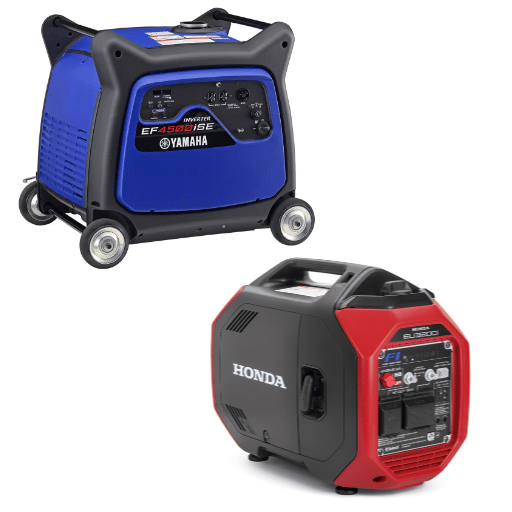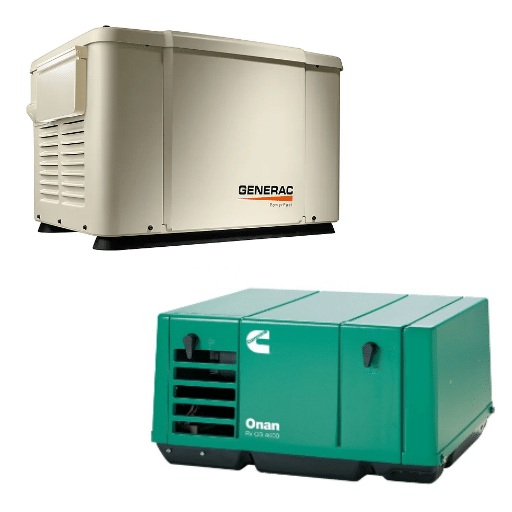Choosing a high-efficiency gas generator is essential, and when considering such a device, efficiency is the most crucial aspect at the top of the list. From powering a far-flung site to simply finding a dependable energy source, the equation of fuel savings is a significant factor in the picture, ultimately helping to control costs and reduce environmental impact. This article discusses various fuel-efficient gas generators, providing in-depth information to ensure it is an informative piece, ultimately helping you make a well-thought-out choice. So, we will run you through each aspect of the process to help you choose the right generator that matches your energy needs and sustainable development goals. This involves understanding the essence of the generator and comparing the market’s most reliable models. Be prepared to delve into the root of the issue and explore how today’s innovative technology can strike the right balance between power and efficiency, without compromising on either.
Understanding Generator Efficiency
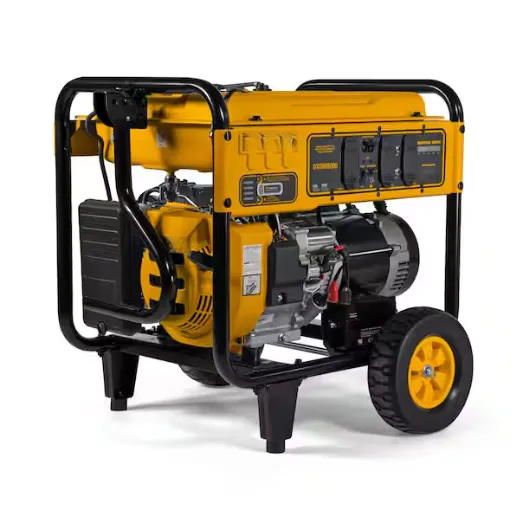
The fuel is a factor to consider in the efficiency of a generator. The efficiency with which the generator converts the energy in the fuel, with minimal waste, is highly dependent on the internal combustion engine design, the generator’s load-carrying capacity, and the type of fuel. It has been observed that the provision of automatic speed control by an inverter considerably improves efficiency, as a direct consequence of reduced fuel consumption. It is essential to select a generator with the correct power rating for your application, as overly powerful generators frequently consume more fuel than necessary. Moreover, one of the ways to keep generators energy-efficient for a long time is by carrying out regular maintenance, such as cleaning the filters and ensuring the engine is tuned to minimize fuel waste. Look for the proper rating and capacities in the generator market to get a product that will save you money in terms of fuel costs and reduced emissions.
Key Features of a Fuel-Efficient Generator
Variable Engine Technology
Variable speed technology is a breakthrough in fuel efficiency that new generators are now equipped with. This technology enables the generators to adjust their engine speed in response to power demand, ensuring that excess fuel is not used when the generators are not fully loaded.
Eco Mode Functionality
Many of the latest portable generators come with an eco mode, which reduces the generator’s RPMs when there is an energy deficit. Not only does this conserve fuel, but it also cuts the noise level down, making the generator more environmentally friendly and suitable for residential use.
High Energy Density and Quality Components
Fuel efficiency is generally found in generators manufactured from the highest standard of materials and that consume power resources intensively. These kinds of models are formulated in such a way as to produce the maximum workload with the least fuel consumption; therefore, no power is wasted.
Smart Power Management
Generators of the latest generation feature an integrated intelligent control that manages and optimizes critical functions, balancing power accordingly. This can prevent overloads and, at the same time, supply fuel in a more efficient and controlled manner, even during periods of highly fluctuating demand.
Clean Energy Certification
A solar generator might be up-marketed as fuel-efficient while also meeting environmental standards or holding certifications such as EPA and CARB compliance. These labels signify not only lower smoke but also reduced carbon monoxide emissions and improved fuel utilization, which are key characteristics to consider when addressing performance struggles. Ultimately, this is the reason for going on the market.
Factors Affecting Fuel Consumption Rates
Load Percentage
The amount of power drawn from a generator is one of the factors that determines the amount of fuel it consumes. It is common knowledge that operating a generator at its rated capacity is more fuel-efficient than operating it at a very low load, where energy wastage is higher.
Generator Size and Type
Larger capacity generators, in general, consume more fuel at varying rates, depending on their design and efficiency. It is the same with inverter machines, which are far and away the winners when it comes to efficiency, even if the load fluctuates.
Fuel Type
Among the four fuels —namely, gasoline, diesel, propane, and natural gas —the choice of fuel is a direct and decisive factor in the consumption of generators. For example, diesel generators typically exhibit higher efficiency than gasoline generators, as diesel fuel has a higher energy density.
Maintenance and Engine Condition
To maintain the generators’ optimal performance, it is essential to clean the lubricant, change air filters, and replace spark plugs promptly. Due to this, fuel consumption may rise as a result of a poorly maintained engine, which is the source of inefficiency in the combustion process.
Environmental Conditions
One of the impacts that the outside can have is on the generator’s performance and fuel consumption. However, it is necessary to note that there are areas with high altitudes, where the air density decreases. This may be because the engines are also operating at low efficiency, resulting in the use of more fuel.
Comparing Power Output and Fuel Usage
When comparing the power they produce and the amount of fuel they consume, it is impossible to ignore the differences between various generator models. At a time when modern technologies, such as inverters and automatic engine adjustment systems, are being used, the use of fuel and conventional methods for generating electric power has been a concern for generator manufacturers. Inverter generators, for instance, are the most versatile compared to other types in terms of fuel consumption, as they can be run economically and efficiently, unlike basic engines. Furthermore, operating data indicate that a generator equipped with the innovative throttle feature and electronic control would be twice as efficient in terms of energy consumption. An understanding of the disparities above is essential in selecting the most appropriate generator according to the conditions of both power & energy requirements, which are more pronounced for continuous usage and/or high power demand scenarios over a more extended period.
Types of Gas Generators
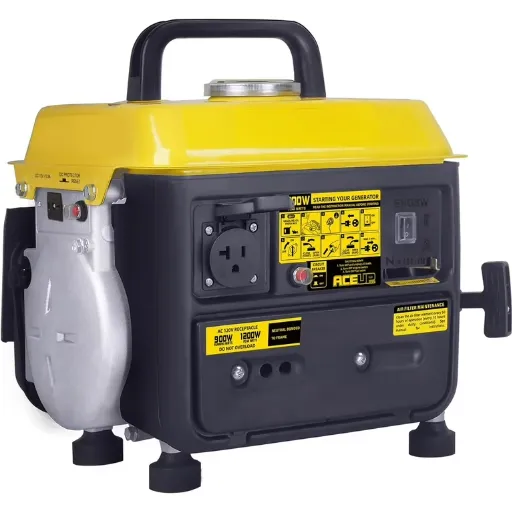
Portable Generators
Portable generators are compact in size and designed for regular use; they are best suited for camping, power outages, and as a power source for construction sites. Generally, these are very convenient to move from one place to another, mostly running on gasoline, and are sufficient to power the whole house.
Standby Generators
Standby generators are the opposite of portable devices, as they are for permanent setup and work automatically during power outages. With the unit being tied to the main power supply of a house or an industrial building, the sources of fuel could range from natural gas to liquid propane. The units are very reliable and capable of supplying electricity for an extended period, making them ideal for residential or commercial power applications.
Inverter Generators
What makes inverter generators unique among others is their very high energy efficiency and low noise emission. These machines produce (almost) undistorted power with quiet harmonic content, making them ideal for charging all electronic devices directly from the grid without any issues. Due to their lighter weight and other advantages, they have become a hit among campers and RV travelers.
Industrial Generators
Industrial generators are heavy-duty, robust machines that can produce a substantial amount of power. They are commonly installed in commercial or industrial areas, and are usually powered by diesel or natural gas, most often found in hospitals, factories, and large-scale construction sites.
Inverter Generators vs. Conventional Generators
| Parameter | Inverter Generators | Conventional Generators |
|---|---|---|
| Power Output | Lower wattage, suitable for small devices | Higher wattage powers large equipment |
| Fuel Efficiency | Highly fuel-efficient | Less fuel-efficient |
| Noise Level | Quiet operation | Louder operation |
| Portability | Lightweight and compact | Bulkier, harder to transport |
| Power Quality | Clean, consistent energy for sensitive devices | Fluctuating energy, less suitable for gadgets |
| Run Time | Shorter runtime on a single tank | Longer runtime per tank |
| Usage | Ideal for camping, RVs, and small-scale usage | Suitable for industrial or home backup needs |
| Startup Mechanism | Often features an electric start | Pull start is common |
| Maintenance | Fewer emissions, lower maintenance | Requires more maintenance |
| Cost | Generally more expensive | Usually more affordable |
Portable Generators for Home Use
When considering the purchase of a portable generator for household use, key factors to consider include power output, fuel efficiency, noise levels, and overall durability. Portable generators of the present day are equipped with various sets of technologies, including bright colors and light projection. The power ratings vary, with the most common ones ranging from 2,000 to 10,000 watts, ensuring there is always a solution to match a very particular need of a family experiencing an outage. Gasoline, propane, and dual-fuel are the three main generator types that run on gasoline, with gasoline being the most common. However, propane generators are gaining popularity too, owing to their significantly lower greenhouse gas emissions and reduced fuel storage problems. Noise is also a significant factor in the case of home power supply generators; therefore, many of the newer models are designed to operate in a way that makes them significantly quieter, thereby making them more suitable for use in residential areas or during emergencies at night.
Standby Generators: Reliability and Efficiency
Standby generators are not only portable but also a permanent installation in the house’s electrical system, running on a constant fuel source such as natural gas or propane. Ultimately, since the genset is always tied to the main power through automatic transfer switches, these systems merge the main and genset conditions, minimizing or, in the best case, eliminating the disturbance. Modern standby generators are also equipped with remote monitoring, which allows owners to view their performance and maintenance needs through their smartphones. They are not only digitally interconnected but also adapted to the environment in a way that is environmentally friendly. As a result, the user becomes the winner in both the long and short term against the terrorists of the grid.
Top Fuel-Efficient Generators
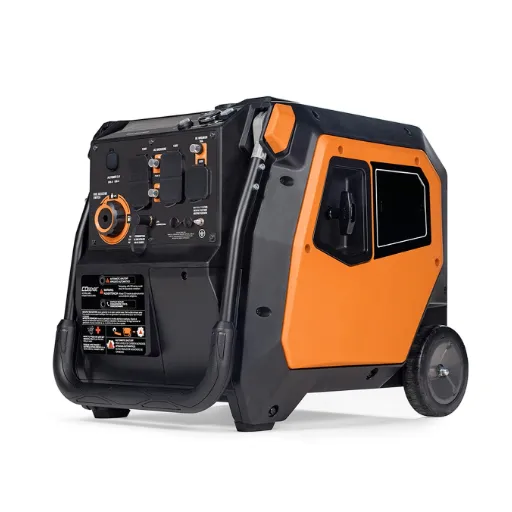
Honda EU2200i
Lightweight, the EU2200i excels in its extremely low fuel consumption. One gallon of gas is enough to keep it going for 8.1 hours, making it very useful not only in homes but also for people’s outdoor activities.
Westinghouse iGen4500
Westinghouse iGen4500 is known for its silent and long-lasting power supply. The Westinghouse inverter generator runs for up to 18 hours on a single tank fill – thanks to the eco-friendly and economically efficient 3.4-gallon fuel tank, which provides this power performance feature.
Champion 100573 4000-Watt Generator
The dual-fuel and economy mode capabilities make it a versatile and cost-efficient high-performance generator. One of its “economy mode” enablement features is the reduction of fuel consumption right from the start, making it a very pocket-friendly choice for long-hour use and hence a fantastic option for all perverts.
Yamaha EF2000iSv2
The Yamaha EF2000iSv2 operates with advanced inverter technology, allowing the generator to use less fuel. It runs for a maximum of 10.5 hours with its quiet and often fuel-efficient work method, which uses only 1.1 gallons for the entire time, not bad for a small to medium power need.
Generac GP3500iO
The Generac GP3500iO is equipped with cutting-edge inverter technology, allowing it to offer lower fuel consumption while providing an effective and reliable power supply. Its small size and longer-than-standard runtime make it a perfect match for both frequent travelers and emergency kits.
Best Home Generators: A Detailed Comparison
| Generator Model | Max Power Output | Fuel Type | Runtime | Noise Level | Weight | Unique Feature |
|---|---|---|---|---|---|---|
| Honda EU2200i | 2200 Watts | Gasoline | Up to 8.1 hours | Quiet at 48-57 dBA | 40 lbs | Compact and fuel-efficient design |
| Champion 100891 | 9375 Watts | Dual Fuel | Up to 10.5 hours on gasoline | Loud at 74 dBA | 202.5 lbs | Dual fuel and large power output |
| Westinghouse WGen7500 | 7500 Watts | Gasoline | Up to 11 hours | Moderate at 72 dBA | 192 lbs | Remote start and transfer switch |
| Yamaha EF2000iSv2 | 2000 Watts | Gasoline | Up to 10.5 hours | Very quiet at 51.5 dBA | 44.1 lbs | Smart throttle for efficiency |
| Generac GP3500iO | 3500 Watts | Gasoline | Up to 8 hours | Quiet at ~58 dBA | 74 lbs | Lightweight and inverter technology |
Honda Generators: Performance and Value
People praise Honda generators for their unsurpassed reliability, high build quality, and high power output. Among these, the Honda EU2200i model pops up as one of the best. It is a 2200-watt output generator that runs on gasoline. It can run for almost 8.1 hours on a full tank. Additionally, it produces noise between 48 and 57 dBA, which is a hushed operation, and can be used as an all-purpose power source in residential and recreational areas. The EU2200i weighs only 47.4 lbs, which makes it easily portable while maintaining high durability. The essence of the Honda generator lies in its inverter technology, which is of the next level, allowing for steady and clean A/C voltage production for safety. People are drawn to the fuel economy and low emissions of Honda generators, which offer the best price-to-quality ratio. The power is high, and the system is also eco-friendly. Operating, the generators are known to be more energy-efficient and less polluting than their counterparts, thereby keeping the overall cost of ownership down.
Champion Power Equipment: Efficiency Analysis
The design of Champion Power Equipment generators prioritizes high performance and fuel economy maximization. Some of the models feature the latest technologies, including their dual-fuel capability. It enables the unit to run on both petrol and propane, providing extended runtime and flexible operation in various conditions. On the other hand, the Champion 200988 Dual Fuel Generator is an example of how the cooperation of two fuel types can work. It features a 14-hour gasoline operation and a 61 dBA noise level, making it an ideal choice for both home and recreational use. In addition, other cutting-edge features found in Champion’s generators are the Cold Start Technology, which ensures the same level of performance efficiency in colder seasons, and the Volt Guard™ surge protector. This technological edge protects appliances from the nuisances of high voltages. It is the combination of power, affordability, and efficiency that makes Champion Power Equipment one of the top portable generator brands in the market.
Maximizing Generator Efficiency

Regular Maintenance
To keep the generator running, it is essential to adhere to the manufacturer’s recommended periodic schedule for oil changes, air filter replacements, and spark plug inspections. Quiet and longer-lasting operation is what properly maintained generators can perform simultaneously.
Use the Right Fuel
It is advisable always to use the type of fuel specified by the manufacturer, as stale or contaminated fuel can negatively affect the engine’s performance and increase the likelihood of damage.
Avoid Overloading
It is highly recommended to match the generator’s power capacity with the appliance’s power requirements. Overloading the generator not only reduces its efficiency but can also pose a potential threat, causing damage.
Operate in Optimal Conditions
The generator should be placed on a flat, solid surface in a well-ventilated area. Also, try to avoid using the generator during extreme weather conditions whenever possible.
Turn Off Unused Devices
To avoid putting unnecessary load, shut off the appliances or devices when they’re not in use. It will not only improve fuel efficiency but also extend the generator’s working hours.
Understanding Run Times on a Full Tank
The time a generator can functionally operate with a full tank is influenced by several factors, including its fuel capacity, engine efficiency, and the load applied to it. The majority of portable generators typically provide 8 to 12 hours of uninterrupted operation with just one fill of the fuel tank and 50% of the load. Using energy-efficient appliances and controlling the use of unnecessary power can help achieve longer runtime. Furthermore, state-of-the-art generators with intelligent inverter technology typically have an excellent fuel efficiency factor; thus, they are the best choice if you want an uninterrupted power supply for sensitive electronics, while also allowing the generator to run longer than usual. Ultimately, referring to the generator’s manual or specifications chart will provide you with the correct figures regarding fuel use and the duration of operation in hours, as well as under various conditions.
Tips to Enhance Fuel Efficiency
Perform Regular Maintenance
Ensuring that your generator is as fuel-efficient as possible is a must. It is recommended to make it a habit to personally monitor the air filter, spark plug, and oil, and change them as required by the factory, using the user manual as a guide. If there is a clean air filter, then the engine will have fewer hurdles to leap, and thus, trimming down the fuel economy that is not needed will be the outcome.
Use the Right Fuel
According to the company, the significance of the correct fuel type lies in its ability to lead to better efficiency. More expensive fuels, most of the time, result in cleaner and more efficient combustion, allowing users to get more mileage from a gallon of fuel than with cheaper brands.
Operate at Optimal Load
It will not only consume the most fuel per kilowatt-hour of energy produced, but it may also be uneconomical. At the same time, the life cycle of the generator may be shortened by running it at full output for an extended period. To illustrate, a 4000-Watt generator may consume roughly 0.5 gallons of fuel per hour at 50% load but more than 0.8 gallons per hour at full power.
Reduce Unnecessary Power Consumption
Another way to save fuel is to eliminate the use of devices or appliances that are not in use at the moment. The generator is then less burdened, and hence its fuel consumption is also reduced. Ensure that the required equipment is prioritized to prevent system overload.
Invest in an Energy-Efficient Generator
Modern generators equipped with inverter technology can regulate their engine speed in accordance with the load applied, thus saving a significant amount of fuel compared to conventional types of gensets. To be more concrete, an inverter generator powering small appliances can result in a reduction of up to 30% in consumption.
Refuel Properly
To prevent both material waste and safety hazards, keep the fuel in the tank without any spills or fuel from overflowing. The fuel should not evaporate into the atmosphere, and there is a risk of accidents if the generator is running and the fuel is being refueled.
Long-term Savings and Economic Value
Purchasing an energy-efficient generator can lead to significant savings. Apart from the lower operational costs, an energy-efficient one can give outstanding economic benefits in the long run. Modern generators, particularly inverter models, are designed to be as fuel-efficient as possible and to have a longer average lifespan. Therefore, due to improved technology, one does not have to replace them frequently. Additionally, these generators consume less fuel, which has the effect of at least not increasing the burden of rising energy costs, a trend that has been ongoing for several years.
Additionally, many top-of-the-line models are equipped with innovative technology features that ensure the most accurate energy output and eliminate waste. Naturally, all these and similar factors add up and eventually result in significant savings of money for both the household and commercial sectors. In addition, lower emissions and less operational cost are two of the positive impacts of these technology-based generators.
Choosing the Proper Generator
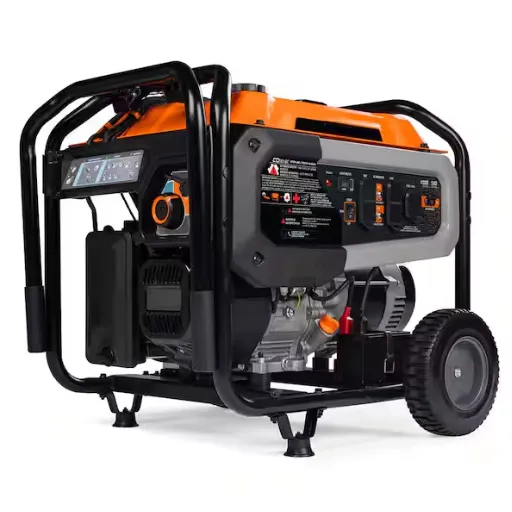
The key aspects to be considered when selecting a generator are:
- Power Requirements – First, calculate the electricity you use. Create a list of the most critical appliances or systems to ensure the generator is sufficient in terms of power without causing an overload.
- Type of Fuel – The availability, price, and storage situation are factors that can dictate the choice of the fuel type, i.e., gasoline, diesel, propane, or natural gas.
- Portability vs. Permanence – Opt for portable generators if you require a temporary power supply, or select standby generators for automatic and prolonged backup.
- Noise Levels – You should monitor the generator for its loudness, especially when living in a residential area or a place where noise levels need to be kept to a minimum. A quieter machine is the best solution whenever one needs the generator around the home.
- Budget and Maintenance – Look closely at the cost in advance, including fuel consumption and servicing requirements, to find an option that is both budget-friendly and reliable.
Compare the various models based on these aspects to find a generator that effectively serves your purpose.
Dual Fuel vs. Tri-Fuel Portable Generators
| Feature/Parameter | Dual Fuel Generators | Tri-Fuel Generators |
|---|---|---|
| Fuel Options | Runs on gas and propane | Runs on gas, propane, and natural gas |
| Flexibility | Limited to two fuel choices | Greater flexibility with three fuels |
| Fuel Availability | Easy to find gas and propane | Natural gas may require special setup |
| Cost | Typically more affordable | Generally higher initial cost |
| Maintenance | Moderate maintenance required | Can require more upkeep |
| Power Output | Consistent with two fuels | May offer higher power capacities |
| Efficiency | Efficient based on fuel availability | Slightly more efficient due to options |
| Weight and Size | Usually more lightweight | Slightly heavier due to extra system |
| Ideal Use Case | Great for home and camping needs | Ideal for larger, long-term use |
| Installation | Easier setup | May require professional installation |
Safety Considerations for Home Generators
The use of home generators should always be undertaken with safety in mind, considering the value of human life and property involved. Some of the essential safety precautions are:
- Placement and Ventilation – It is essential always to place the generator outside the building and at least 20 feet away from doors, windows, and vents to prevent carbon monoxide poisoning. Never run a generator in enclosed or partially enclosed spaces.
- Carbon Monoxide Alarms – It is preferable to install battery-operated or plug-in carbon monoxide detectors in a home to detect dangerous levels of the gas.
- Proper Handling of Fuel – The sound practice in handling fuel is to keep it in approved containers, away from living areas, and far enough from the generator to minimize fire hazards. Additionally, observe the generator’s cooling period before refueling.
- Dry Operation – Never operate generators in wet surroundings. Place the generator on a dry surface and cover it with a tent or other shelter to prevent electrical shock. Ensure the cords and plugs are in good condition.
- Regular Maintenance – Monitor the manufacturer’s maintenance schedule, which includes oil changes and inspections, to ensure a sustainable and efficient working system in the long run.
It is through these guidelines that the homeowners will be able to lessen the risks and, at the same time, take advantage of the power generated by the generator during power outages or other situations where power is necessary.
Reference Sources
-
- Summary: This study evaluates the economic efficiency and environmental impact of biogas utilization in a hybrid diesel-wind system. It highlights that the combinational system, including an $800 biogas generator, is the most efficient in reducing greenhouse gas emissions and operational costs.
-
A High Efficient Energy Converter for a Hybrid Vehicle Concept
- Summary: This paper introduces a novel energy converter for hybrid vehicles, utilizing a gas spring mechanism and a linear generator. The system efficiently converts mechanical energy into electrical energy during the piston’s return stroke.
Frequently Asked Questions (FAQs)
Q: How do I choose a generator for my home?
A: Generator selection for your home is not an easy task, as it consists of several critical factors. You will need to start by assessing the power needs by summing the watts of all the appliances in the household that are in use. Additionally, the type of lifestyle you would be happy to live in will determine whether a portable inverter generator or a home standby generator is the best choice for outdoor use. In the opposite case, a home standby generator will best fit the purpose, albeit at a higher cost. The third issue will be related to the available source of energy; that’s why you will have to consider models that can utilize both gas and propane to be on the safe side. Eventually, the fifth point and generally the final one will be about the available money; for that reason, you will need to evaluate the expense of the generator against its power and economic requirements.
Q: What are the benefits of using a portable inverter generator?
A: Having an inverter generator that can be carried around has a lot of advantages, especially for those who need backup electric power on the move. They are lightweight and compact, making them easy to move. The fuel efficiency of inverter generators is one of their key features, providing users with assurance of a continuous power supply while consuming less fuel compared to other types of generators. Moreover, they emit clean AC power, which is safe for sensitive electronics. If you need a generator that runs quietly and efficiently, a portable inverter generator is the ideal choice.
Q: What should I consider when buying a generator?
A: If you are interested in purchasing a generator, then you must keep the power needs in mind, more specifically, the watts of the power you wish to operate on. And then, spare a thought for the kind of generator that is most suitable for your way of living, whether it is a portable generator for use during a trip or a home standby generator for use during calamities. Fuel efficiency is a crucial issue; the double-fuel options may be outstanding in terms of fuel flexibility. Additionally, the duration the generator can run on a full tank of gas is a good criterion to consider, as it indicates the number of hours the connected home or device can be powered. Finally, do not forget to examine the safety features and the warranty so that you can get the best and most secure return on your investment.
Q: What is the best value generator for home emergencies?
A: Considering the price, performance, and features of home emergency, the most efficient generator must be the one that strikes the perfect balance. There is no better choice for this situation than a dual-fuel portable generator, as it is not only versatile and money-saving but also efficient. For example, Honda and Champion Power Equipment are well-known for their excellent quality and fuel economy, making them genuine contenders. Moreover, you should select a generator that matches the power needs of your essential appliances during the outage. If you have such a generator, you will not need to worry about power during a blackout. At the same time, these same features must be coupled with safety features that prevent short-circuiting, thus ensuring the device’s safety.





